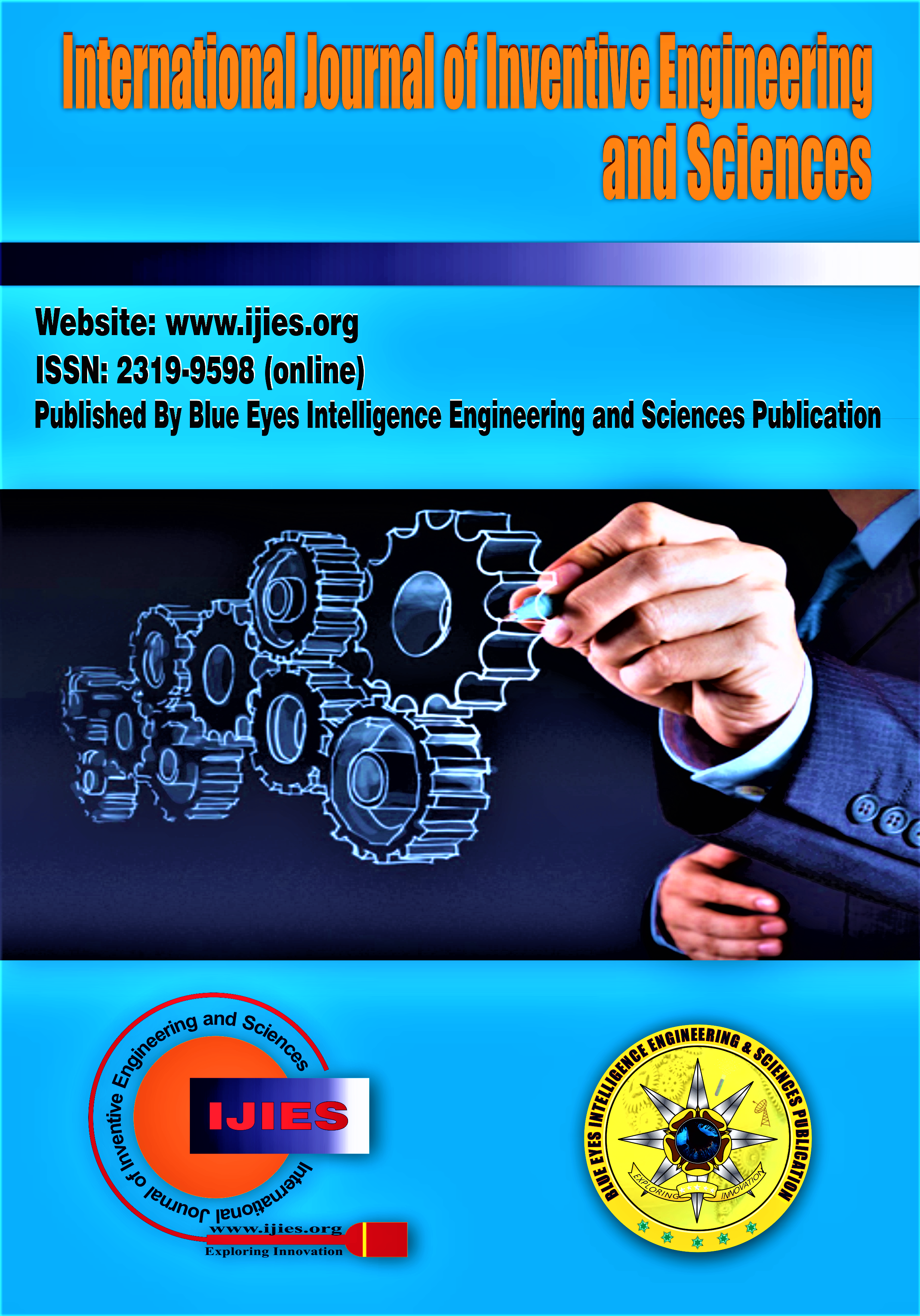Evaluation of the Impact of Urban Green Space on the Climate in the Flood Event in Sarab Shahabad, Khorramabad
Main Article Content
Abstract
Urban development with the current methods has had many negative effects on water resources and urban ecology and has caused urban environments to distance themselves from the goals of sustainable development. In the field of hydrology, studies show that rainwater management in cities in the traditional way has had negative effects, including an increase in the volume of runoff and an increase in peak flows. Also, the traditional methods of urban water management by removing native vegetation and increasing hard levels have greatly reduced the urban green space per capita. Considering the climate changes as well as the damage and losses caused by floods in recent years, as well as the reduction of vegetation around urban springs, and the increase in life and financial risks for citizens, in this research the risk of flooding and the zoning of flood-prone lands in The source of Sarab Shahabad, Khorramabad city It was done using satellite photos and Arc GIS software. For prioritizing the criteria, the AHP model was used. And the Expert Choice software environment was used, which ultimately resulted in the conclusion that the most important factor in the occurrence of floods is the lack of vegetation in the area and the distance from the bed of the source and construction on the way to the source, which causes irreparable damage to the area and It has also become a city.
Downloads
Article Details
Section

This work is licensed under a Creative Commons Attribution-NonCommercial-NoDerivatives 4.0 International License.
How to Cite
References
H.K. Chang, Y.C. Tan, J.S. Lai, T.Y. Pan, T.M. Liu, C.P. (2013) , Tung, Improvement of a drainage system for flood management with assessment of the potential effects of climate change, Int. Assoc. Sci. Hydrol. Bull. 58 (8) (2013) 17. DOI: http://dx.doi.org/10.1080/02626667.2013.836276
Iran Statistical Center, official census of 1345-1402. https://www.amar.org.ir/en/
Brody, S., Kim, H., Gunn, J., 2013. Examining the Impacts of Development Patterns on Flooding on the Gulf of Mexico Coast. Urban Studies, 50(4): 789-806. DOI: https://doi.org/10.1177/0042098012448551
Shi, P., 2019. Hazards, Disasters, and Risks, Disaster Risk Science. Springer Singapore, Singapore, pp DOI: https://doi.org/10.1007/978-981-13-6689-5_1
Intergovernmental Panel on Climate Change (IPCC),2012 https://noc.ac.uk/news/noc-contributes-latest-ipcc-report-assessing-impacts-climate-change?gad_source=1&gclid=EAIaIQobChMIw8jPztGriwMVqI5LBR0P1Qs_EAAYASAAEgKr0PD_BwE
Vijayaraghavan, K.; Biswal, B.K.; Adam, M.G.; Soh, S.H.; Tsen-Tieng, D.L.; Davis, A.P.; Chew, S.H.; Tan, P.Y.; Babovic, V.; Bioretention systems for stormwater management: Recent advances and future prospects. (2021) DOI: https://doi.org/10.1016/j.jenvman.2021.112766
Sarah, P.; Zhevelev, H.M.; Oz, A)2015(. Urban park soil and vegetation: Effects of natural and anthropogenic factors. Pedosphere 2015, 25,392–404. DOI: https://doi.org/10.1016/S1002-0160(15)30007-2
Boulton, C., Dedekorkut-Howes, A., Byrne, J., 2018. Factors shaping urban greenspace provision: a systematic review of the literature. Landsc. Urban Plan. 178, 82–101. DOI: https://doi.org/10.1016/j.landurbplan.2018.05.029
Allen, W.L., 2012. Environmental reviews and case studies: advancing green infrastructure at all scales: from landscape to site. Environ. Pract. 14 (1), 17–25. DOI: https://doi.org/10.1017/S1466046611000469
Reynolds, H.L., Brandt, L., Fischer, B.C., Hardiman, B.S., Moxley, D.J., Sandweiss, E., Speer, J.S., Fei, S., 2020. Implications of climate change for managing urban green infrastructure: an Indiana, US case study. Clim. Chang. 163, 1967–1984. DOI: https://doi.org/10.1007/s10584-019-02617-0
Biggs, R., Schlüter, M., Schoon, M.L., 2015. Principles for Building Resilience: Sustaining Ecosystem Services in Social-Ecological Systems. Cambridge University Press, Cambridge, UK. https://assets.cambridge.org/97811070/82656/frontmatter/9781107082656_frontmatter.pdf
Rizwan, A.M., Dennis, L.Y., Chunho, L.I.U., 2008. A review on the generation, determination and mitigation of Urban Heat Island. J. Environ. Sci. 20 (1), 120–128. DOI: https://doi.org/10.1016/S1001-0742(08)60019-4
Slater, G., 2010. The Cooling Ability of Urban Parks. Doctoral Dissertation, MS thesis. School of Environmental and Rural Design, University of Guelph Systems for Combating Extreme Rainfall Events: Design of Shanghai Gongkang Green Space to Adapt to Climate Change, Land 2022, 11, 777. https://www.asla.org/2010studentawards/169.html
Yang, Liyun, Zhang, Linbo, Li, Yuan, Songtao, Wu., 2015. Water-related ecosystem services provided by urban green space: a case study in Yixing City (China). Landsc Urban Plan. 136, 40–51 DOI: https://doi.org/10.1016/j.landurbplan.2014.11.016
Asadian, Y., Weiler, M., 2009. A new approach in measuring rainfall interception by urban trees in coastal British Columbia. Water Qual. Res. J. Can. 44 (1), 16. DOI: https://doi.org/10.2166/wqrj.2009.003
Janh¨all, S., 2015. Review on urban vegetation and particle air pollution–deposition and dispersion. Atmos. Environ. 105, 130–137 DOI: https://doi.org/10.1016/j.atmosenv.2015.01.052
Reynolds, H.L., Brandt, L., Fischer, B.C., Hardiman, B.S., Moxley, D.J., Sandweiss, E., Speer, J.S., Fei, S., 2020. Implications of climate change for managing urban green infrastructure: an Indiana, US case study. Clim. Chang. 163, 1967–1984. https://doi.org/10.1007/s10584-019-02617-0
Saba, B. (2021). Green Spaces Availability versus Accessibility: Case of Okhla, South Delhi. In Indian Journal of Environment Engineering (Vol. 1, Issue 2, pp. 5–10). DOI: https://doi.org/10.54105/ijee.b1814.111221
S, Y., & B, S. (2021). Challenges of Urban Green Space and Its Accessibility in Planning District 12 Mysuru City. In International Journal of Recent Technology and Engineering (IJRTE) (Vol. 10, Issue 1, pp. 137–141). DOI: https://doi.org/10.35940/ijrte.a5802.0510121
Intan Findanavy Ridzqo, Hasna Jamilah, Pauline Brajon, Dynamic Vista of Sustainable Green Public Spaces Network in Wonosobo. (2020). In International Journal of Innovative Technology and Exploring Engineering (Vol. 9, Issue 3S, pp. 209–214). DOI: https://doi.org/10.35940/ijitee.c1046.0193s20
Sambaturu, S. (2025). Green Computing Optimization for Multi-Region Streaming Platforms. In International Journal of Emerging Science and Engineering (Vol. 13, Issue 2, pp. 27–29). DOI: https://doi.org/10.35940/ijese.f3653.13020125





